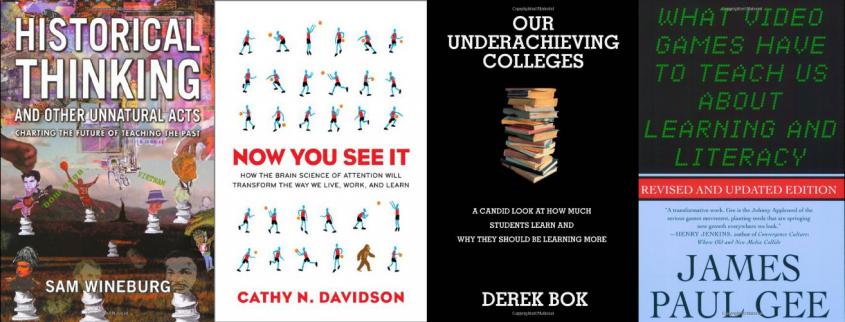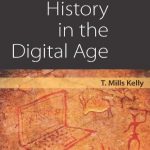by Karl Hagstrom Miller and Penne Restad
A few of the most important and engaging books about teaching college students.

Sam Wineburg, Historical Thinking and Other Unnatural Acts: Charting the Future of Teaching the Past (2001).
When it comes to the lament that students don’t know anything about history, Sam Wineburg has heard it all. He documents the problem in Texas schools at least as far back as the early 20th century. He sees things differently. His path breaking work explores reasons for why and how students learn what they do and helps us understand that there’s more to knowing history than passing a multiple choice test.
Cathy Davidson, Now You See It: How the Brain Science of Attention will Transform the Way we Live, Work, and Learn (2011).
In this highly engaging, readable study, Davidson shows how teachers (and others) can apply scientific advances and new digital technologies in the real world of the classroom.
Derek Bok, Our Underachieving Colleges: A Candid Look at How Much Students Learn and Why They Should be Learning More (2006).
Bok, a former president of Harvard, reviews what we know about undergraduate learning and the obstacles to improvement in this study of what he believes undergraduate education should provide.
James Paul Gee, What Video Games Have to Teach Us About Learning and Literacy (2007).
What if students were as engaged in their education as they can be when playing video games? Gee argues that video games employ 36 effective strategies that apply to improving teaching and learning in schools. For example, games provide multiple opportunities to meet increasingly difficult challenges, which can enhance not only knowledge and skill, but also motivation to continue the game.



